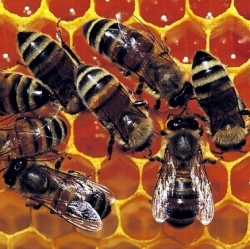
Food nourishes the body but also affects its biological clock, which regulates the daily rhythm of many aspects of human behavior and biology. Research provides insights into how adjusting the clock through dietary manipulation may help patients with conditions and show that insulin may be involved in resetting the clock.
An internal biological or ‘circadian’ clock plays an important role in preferred sleep times, times of peak alertness, and the timing of certain physiological processes. The clock enables maximum expression of genes at appropriate times of the day, allowing organisms to adapt to the earth’s rotation. "Chronic desynchronization between physiological and environmental rhythms not only decreases physiological performance but also carries a significant risk of diverse disorders such as diabetes, cardiovascular diseases, sleep disorders, and cancer," says Dr. Makoto Akashi, of Yamaguchi University, in Japan.
The circadian clock involves two major pathways. The first, which responds to light, has been well characterized. The second, which responds to food, is less understood. Through experiments in cells and mice, Dr. Akashi and his colleagues found, using cell culture, that insulin, a pancreatic hormone that is secreted in response to feeding, may be involved in resetting the circadian clock. "Insulin-mediated phase adjustment of the clock in feeding-relevant tissues may enable the synchronization between mealtime and tissue function, leading to effective digestion and absorption," he says. "In short, insulin may help the stomach clock synchronize with mealtime."
